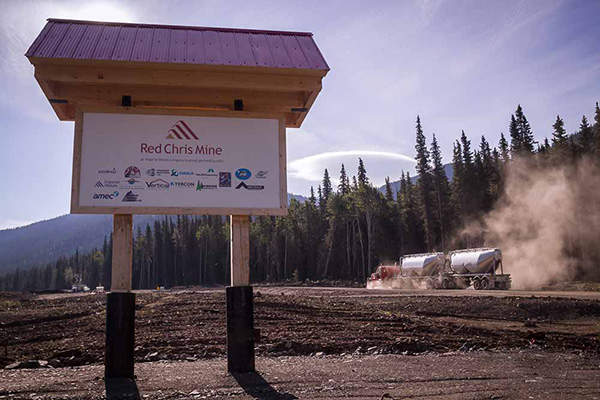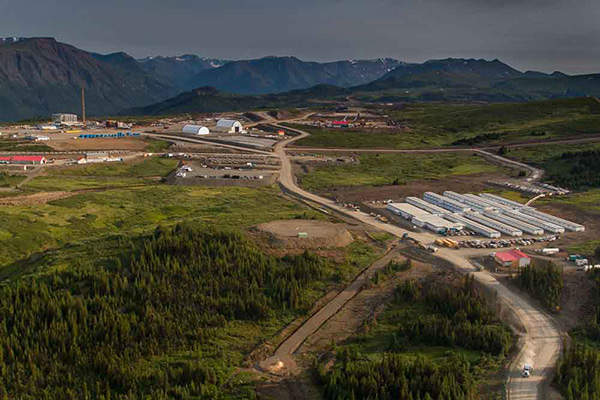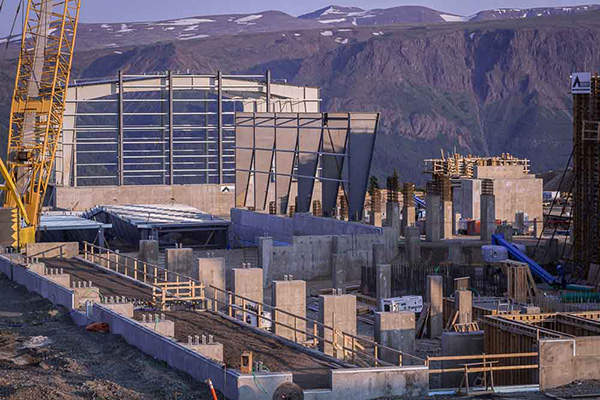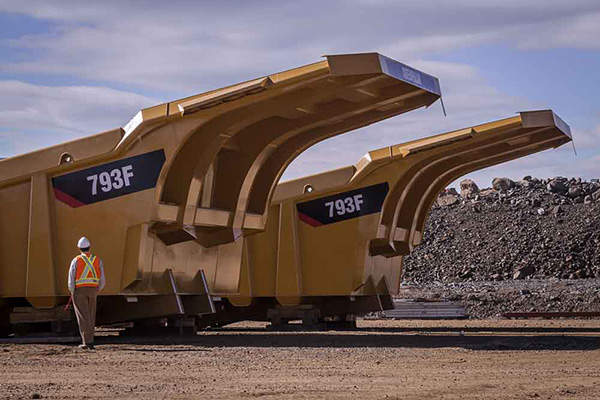The Red Chris copper-gold mine is located approximately 80km south of Dease Lake in north-west British Columbia, Canada. The mine is owned and operated by Red Chris Development Company (RCDC), a wholly owned subsidiary of Imperial Metals.
A mining permit for the Red Chris project was granted in May 2012 after which, construction began immediately. Mining operations began with the excavation of ore-grade material and the first copper concentrate was produced on 17 February 2015. The first loads of concentrate were trucked to Stewart Bulk Terminals on 27 February 2015 and the first shipment was made on 11 April 2015.
The project development comprises an open pit mine and a 30,000t capacity mill, which processed more than 193,000t in February to produce approximately 2,400t of copper concentrate. Red Chris has an estimated mine life of 28.3 years.
The mining project is anticipated to create 500 construction and 300 operational jobs.
Red Chris mine geology and reserves
Related content
Galore Creek Project, British Columbia
Galore Creek is one of the largest and highest-grade unexplored copper-gold-silver mines located in north-west British Columbia.
The porphyry copper-gold deposit is located on the eastern segment of the Todagin Upland Plateau, a subdivision of the Klastine Plateau along the northern margin of the Skeena Mountains.
The deposit consists of intrusive rocks believed to have formed during Late Triassic to Early Jurassic period. The deposit is hosted by the Red Stock, an east-north-east elongated intrusive body composed of plagioclase, hornblende and biotite-phyric porphyry phases of subalkaline to silica-saturated alkaline compositions.
Red Chris shows the characteristics of both alkalic and calc-alkalic porphyry copper deposits. Copper sulphide mineralisation occurs in quartz veins and in micro fractures, and most of the mineralisation is located in the central part of the property.
The open pit mine is estimated to contain reserves of more than 301.5 million tonnes (Mt) grading at 0.359% copper and 0.274g per tonne (g/t) of gold.
Mining and ore processing of copper-gold
Conventional shovel and truck mining methods are applied at the open pit mine. The east and main zones of the deposit are proposed to be mined separately initially and later merged into a single pit.
The mining fleet comprises Caterpillar 793 and 785D haul trucks, Joy Global’s hydraulic / electric shovel, Komatsu PC4000 hydraulic / diesel shovel and other supporting surface mining equipment.
The run-of-pit ore is hauled to a primary gyratory crusher where it is crushed and stockpiled. The crushed ore is reclaimed by feeders and fed via a conveyor to the primary mill grinding circuit comprising a single, semi-autogenous grinding (SAG) mill. Oversized pebbles are removed through screening, crushed and delivered back to the SAG mill, while the undersized pebbles are transported to the ball mill for secondary grinding.
Ground slurry from the secondary grinding circuit passes through the rougher / scavenger flotation circuit. The concentrate is cleaned in column flotation cells and pumped to the concentrate thickener producing the final copper-gold concentrate. The produced concentrate is then trucked to concentrate storage and ship-loading facilities at the Port of Stewart and shipped to smelters overseas.
Construction and infrastructure facilities at the Red Chris operation
Major infrastructural works at Red Chris include tailings and reclaim water system installation, SAG mill and other components.
Power supply for the mine is provided by BC Hydro from its Skeena substation via a 287kV transmission line to Bob Quinn from where the line is connected to the substation at the mine via Tatogga. The Northwest Transmission Line (NTL) has been extended by 93km from Bob Quinn to Tatogga.
Tailings of the mine are stored at the impoundment area in a Y-shaped valley located approximately 3.5km north-east of the open pit.
Financing Imperial’s Red Chris mining project
The copper-gold project is funded through $325m of senior unsecured notes, a senior secured revolving credit facility of $200m and a $75m junior unsecured credit facility with Edco Capital Corporation.
Contractors involved
AMEC completed the feasibility study of an open pit mine at Red Chris in 2005 and was subsequently awarded the detailed design contract for the project.
G&T Metallurgical Service was engaged in January 2010 to conduct a scoping level study to examine the metallurgical characteristic of the deeper areas of the East Zone of the Red Chris mine.
Golder Associates was contracted to operate acoustic televiewer for a survey conducted by Imperial Metals on the Red Chris mine in 2012.








